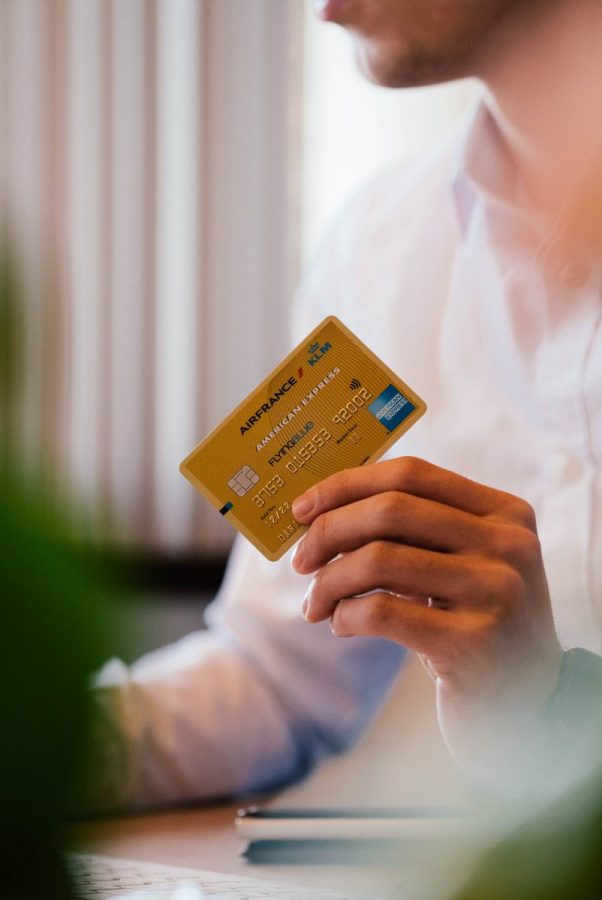As if taking advantage of modern-day technology to cheat someone out of their hard-earned money isn’t bad enough, identity thieves also leave each and every victim with a lovely little “To-Do” list.
If you follow me on twitter, you might have seen that I was the victim of identity theft this weekend. It was a typical Saturday morning. I was enjoying a steaming cup ‘o joe and went to log into my bank’s website like any other day, when I saw it – an unusual $850 increase. Dang, movies really are getting expensive!
Turns out, although movies are outrageously over-priced, it was just some confused guy in India trying to pay his $836.47 Cellucom bill and must have accidentally used my credit card! Whoops!
Luckily, my bank declined the charge without a second thought. I made a mental note right then to stop using so many four-letter words when describing my bank to people.
STEP 1
Everyone knows this step. As soon as you see the theft, call your bank and cancel the card immediately. If you didn’t know that, then you should probably have all credit cards in your name immediately destroyed.
Step number 1 took me all of five minutes. After I hung up the phone, I was done, right?
WRONG.
Step 2
Most people forget this step until it’s too late. After I had cancelled my card, it quickly dawned on me how many automatic bill payments I had filtering through that very credit card on a monthly basis.
After you’ve cancelled your card, you’ll have to go through and switch every automatic payment from that credit card to another card or bank account.
This is the catch-22 with those handy-dandy automatic bill payments – they can always come back to haunt you if your credit card changes or expires (or gets hijacked by some scammer halfway across the globe forcing you to cancel your card).
When a company tries to bill you for your automatic payment and your card gets declined, guess what they do? Do they have their secretary call you to remind you that your credit card expired? That would be nice, but unfortunately, that’s not the case. They immediately charge you penalties and late fees, which can end up on your credit report in the end.
These two steps are two things you must do immediately when you’re the victim of identity theft. Your bank may have declined the initial fraudulent transaction, but if you don’t switch all your automatic bill payments, companies can just as easily rob you on a late fees.
Of course there is always step 3 which involves booking a plane ticket and tracking down the jerks that took advantage of your credit. Unfortunately, step 3 carries a high risk and a low success rate, so it’s generally not highly recommended…
If you’re ever the victim of identity theft – and I hope you’re not – always remember there are 2 steps (not just one!) when closing down your exposed credit card.



This was such a great post.
I feel that step 3 would be my step 1!!! I’m glad that you got everything sorted out.
You can never be too careful when it comes to identity theft… you should never just assume that it was a mistake. I’m glad you took the right steps to nip it in the bud!
Carrie, since it is not possible to determine if your chatty overseas cell user was merely mistaken or had bad intent, I have to take your side in presuming that this might be ID theft. The company I work for in fact is hosting a seminar in a few minutes about this topic as part of National Protect Your Identity Week. Better safe than sorry, while a hassle, is worth it to make sure you aren’t victimized.
A HUGE step would also be to immediately alert the credit agencies — Experian, Equifax and TransUnion — to let them know that fraudulent behavior could be occurring. This would likely confirm if someone is opening accounts in your name. All consumers should take advantage of the free reports from each that are available annually at annualcreditreport.com. They don’t have a catchy song, but they are free and you should routinely check them. A good tip generally is to stagger checking them so that you don’t see all three at once. This way you can continuously monitor your accounts throughout the year.
Looks like GG didn’t get the sarcasm in “confused” and “whoops”.
I wonder what the likelihood of the idiot getting arrested is. After all, it’s pretty obvious who he is if he’s paying a monstrous phone bill.
I agree with some posters that this isn’t enough to constitute identity theft as it stands. It could lead to it, but right now it’s just a fraudulent or mistaken charge on your account. Identity theft is when more stuff starts happening and your SSI has been compromised, etc. It’s a BIG problem when you get to that point.
I definitely think you did the right thing though, contacting your CC company. They used to just correct the mistake for you, but with the rise in actual ID theft and stolen numbers, many will just outright cancel your card and issue a new one as a precaution.
This happened to me in April, right before my big trip to Las Vegas! Ouch!
It’s a huge headache but it would be even worse if you didn’t catch it as fast as you did. +1 to Carrie for checking her statements regularly!
Re Step 2: That’s why I don’t believe in direct debits. I DO believe in automatic payments – the ones that YOU set up and control (but only for things that recur really frequently and are always the same around like rent). I pay my bills electronically, but I do it manually if that makes sense; I don’t like giving out my details and don’t want companies being able to access my account. Plus, I’ve been burned once by being continued to be charged after cancelling a direct debit. :@
Hi, I just now found your site whilst I’m browsing on the Internet as I am seeking some information on debt relief!. I think it’s an interesting site so I’ve bookmarked your site and I intend to come back soon to give it a more indepth look when I have more time.